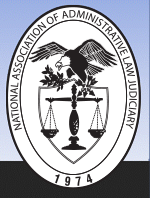First Page
564
Last Page
601
Abstract
While reading this article, two questions should be kept in mind: (1) why the Court held that the TSA promulgated whistleblowing regulation was not considered to have the force and effect of law, and how that effects other regulations, and (2) how should the Supreme Court respond if a conflict of congressional intent and statutory interpretation arises within another regulatory or administrative agency's internal scheme for regulating such issues? With a careful analysis of statutory interpretation and determining congressional intent, and some luck, this article will try to answer these questions. Ultimately, what we will find is that although Congress attempted to establish an efficient system to delegate its responsibilities, here, the judiciary robbed Congress and the administrative state of their ability to self-regulate and promulgate duties.
Recommended Citation
Serje Havandjian,
The Administrative State: Problems Associated with Congressional Intent, Statutory Interpretation, and the Powers Granted to Administrative Agencies,
36 J. Nat’l Ass’n Admin. L. Judiciary
564
(2016)
Available at:
https://digitalcommons.pepperdine.edu/naalj/vol36/iss2/6

